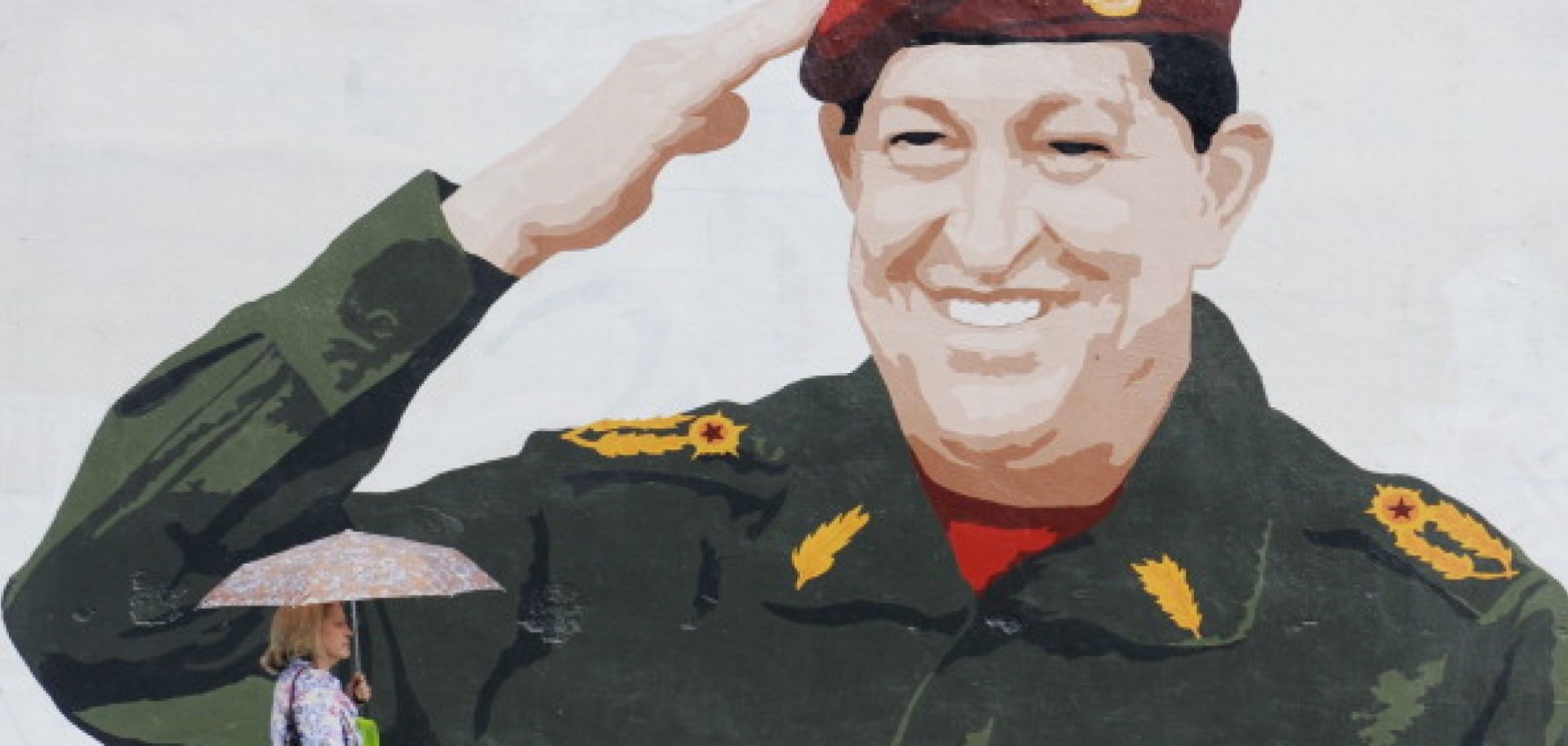ASSESSMENTS
Venezuela: The Presidential Election and Chavez's Support Structures
May 21, 2012 | 10:01 GMT

LEO RAMIREZ/AFP/GettyImages
Summary
Venezuelan President Hugo Chavez has returned to Venezuela after reportedly undergoing his sixth round of radiation therapy for abdominal cancer in Cuba. Because the system of governance Chavez created depends largely on his personal oversight, Chavez's health concerns have cast doubt on whether Venezuela will undergo a peaceful transition after the Oct. 7 presidential election.
The election likely will mark a transitional period for the Venezuelan government regardless of the outcome. While Venezuelan Foreign Minister Nicolas Maduro appears to be Chavez's successor in the event the president does not run for re-election, Miranda department Gov. Henrique Capriles Radonski has waged a modestly effective presidential campaign showcasing himself as a viable opposition candidate. Whoever becomes president will have to maintain stability amid several outstanding challenges.
A peaceful transition is possible, but the risk of instability remains. It is the manner in which Venezuela's next leader deals with the Chavez regime's key support structures — popular support, oil revenue, the military, non-military security forces and the Cuban government — that will determine the placidity of the transition.
Subscribe Now
SubscribeAlready have an account?
